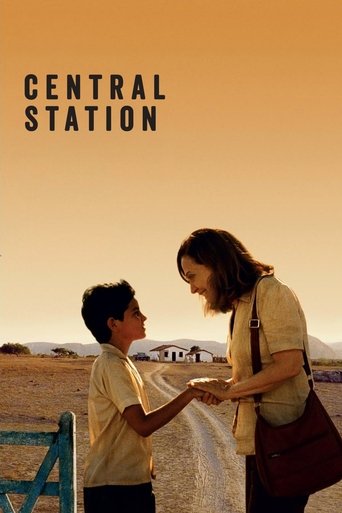Between hope and solitude, two lives cross and reinvent themselves
"Central do Brasil" (1998), a poignant cinematic masterpiece crafted by MACT Productions and Videofilms, transcends borders with its Brazilian and French collaboration. Directed by Walter Salles, the film delves into the heart of human connection and the quest for identity. The narrative follows Dora, a retired schoolteacher turned letter writer at Rio de Janeiro's bustling Central Station, whose life takes an unexpected turn when she agrees to help a young boy, Josué, find his father after his mother's tragic death. This journey across Brazil's diverse landscapes not only transforms their lives but also captivates audiences with its raw emotional depth and stunning visual storytelling. The film's strength lies in its compelling performances by Fernanda Montenegro and Vinícius de Oliveira, who bring authenticity and vulnerability to their roles. Montenegro's portrayal of Dora earned her an Academy Award nomination for Best Actress, a testament to her ability to convey the complexities of a woman grappling with her past and newfound responsibilities. Oliveira, in his debut role as Josué, delivers a heartfelt performance that resonates with innocence and resilience, making their on-screen chemistry a cornerstone of the film's emotional impact. "Central do Brasil" is not just a story of a physical journey but a profound exploration of emotional and moral landscapes. The film's cinematography, capturing the vastness of Brazil from urban chaos to rural serenity, serves as a metaphor for the characters' internal transformations. The subtle yet powerful score by Antonio Pinto and Jaques Morelenbaum complements the narrative, enhancing the film's emotional resonance without overshadowing the story's natural progression. Ultimately, "Central do Brasil" stands as a testament to the power of human connection and the search for belonging. Its universal themes of loss, redemption, and hope, combined with its cultural specificity, make it a timeless piece of cinema that continues to inspire and move audiences around the world. Through its masterful storytelling and unforgettable performances, the film remains a cherished gem in the landscape of international cinema.
Año1998
Presupuesto2900000$
Duración110 minuto
Ingresos5596708$
GénerosDrama
Países de producciónBrazilFrance


